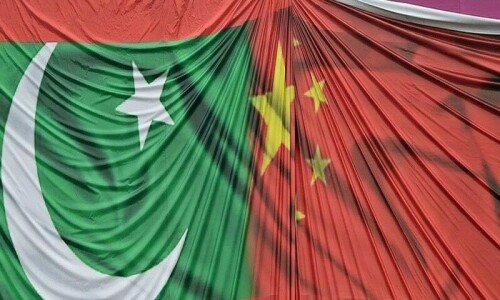Farmers protest against govt for allotting 'hunting' land to Qatari princes

Farmers and tribesmen on Saturday protested against allotment of land to Qatari prince for hunting houbara bustards in Balochistan's Kachhi district.
The incensed farmers blocked the road linking Gandawah with Shoran. Traffic on the road remained suspended for hours as a result.
Sardar Khan Rind, the district chairman as well as a Pakistan Tehreek-i-Insaf (PTI) leader, led the protesters, shouting slogans against the Pakistan Muslim League-Nawaz (PML-N) government for allotting the entire Sani Shoran Tehsil to Qatari princes.
"We will not bow down before usurpers," Rind said while addressing the protesters.
The farmers and tribesmen said that it is cropping season in Sani Tehsil and alleged that it was a conspiracy, adding that the entire tehsil was allotted to Qatarai princes to deprive people from their daily earning.
"I am being punished for being a PTI leader," Rind, the chief of Balochistan chapter of PTI, told Dawn.com.
The PTI leader accused the federal government of using security forces in the area to allow the Qatari princes to hunt the houbara bustards.
"They are snatching food from the mouth of farmers", he said, lashing out at the government.
Rind has also written a letter to the ambassador to Qatar to alert him of the situation.
Locals told Dawn.com a convoy of Arab royal family members had arrived in the area to hunt the endangered bird.
PML-N officials declined to comment on the issue.
About the houbara
The houbara species found in Pakistan is officially known as MacQueen's Bustard, or Asian Bustard. It was once also common in the deserts of the United Arab Emirates and Saudi Arabia, but by the early 1970s they had been hunted to near-extinction by native falconers.
Till the late 1960s, the species was found in abundance in Pakistan and was only occasionally hunted for its meat by village folk in the areas where it thrived.
In the Gulf, however, where it had become extinct, its meat was believed to have contained an aphrodisiac, a myth that has never been proven scientifically.
In Pakistan in the mid-1970s, the bustards began to be hunted by men who eventually became their greatest adversaries: Rich Arab sheikhs.















































